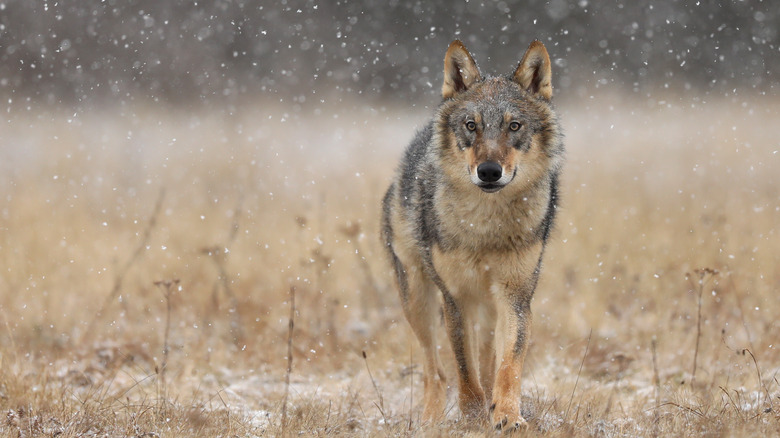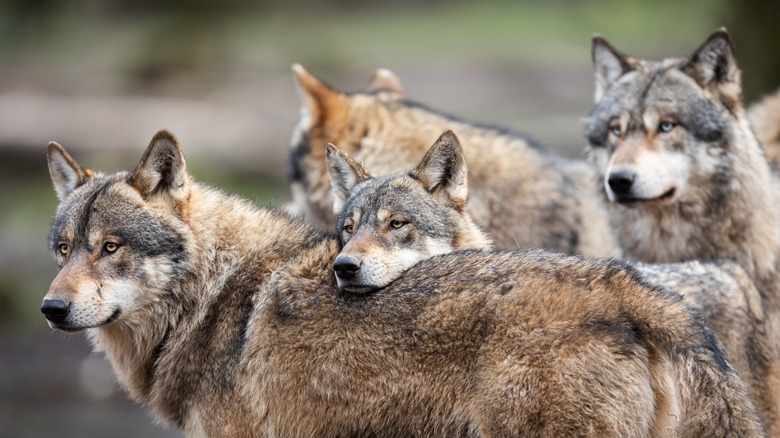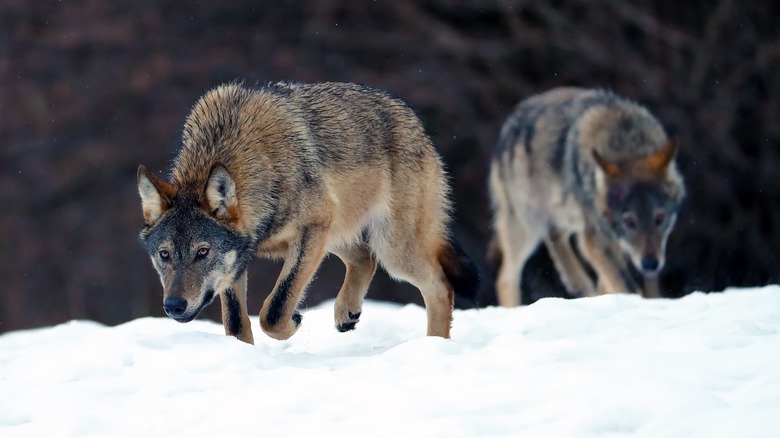It Turns Out Alpha Male Wolves Don't Actually Exist In The Wild
Everyone knows someone who likes to call himself an alpha male. Whether it's the cocky manager in your office or some guy you met on Tinder who wants to make sure you know how dominant he is, alpha male has become a shorthand for a macho guy who likes to lead.
But where did the term actually come from? The phrase dates back to the 1940s, when a researcher named Rudolph Schenkel wrote an article on wolves called "Expressions Studies on Wolves," according to Gizmodo. The paper, which pulled from research on captive wolf packs, suggested that wolves lived in social structures dominated by an alpha male and an alpha female. These alphas could be unseated through conflict, but as long as they remained in charge, they determined how the other wolves behaved and dictated the structure of their groups.
Later, a paper by a scientist named David Mech promoted this term further, according to Discover. People were quick to get behind this depiction of wolves, and even to infer that the alpha structure must apply to other social systems, too, including the social system of humans. But in fact, further research has suggested that this is not the case. As early as the 1990s, scientists had come up with evidence that alpha wolves actually don't exist in the wild (via Science Norway).
What wild wolf packs actually look like
Our understanding of wolf packs became more accurate when scientists expanded their observations beyond wolves in captivity to deep studies of wolves living in the wild. Groups of wolves in captivity do form competitive social structures with alpha male and females, but in the wild, wolf packs are actually made up of closely related animals: Namely, a mother and father, and their offspring, according to Science Norway.
In these groups, the two parents are in charge, but only in the sense that all parents are in charge of their children. It is exceedingly unlikely that puppies challenge their parents for control of their pack, according to Science Norway, with a turnover of alphas only happening when a parent dies. Instead, puppies stay with their parents' packs until they are around a year old, then venture out to win their own territory and mates, according to ZME Science.
Updated terminology deems you call parent wolves breeding males or females, or adult males or females, instead of alphas, the International Wolf Center says.
There have been a few instances of bigger packs existing in the wild, including in Yellowstone National Park, where three or four generations of puppies might live together with their parents, according to Science Norway. But this pattern of behavior has very rarely been observed in other locales.
Why people still talk about alpha wolves
So when did scientists figure this out? The idea of wolves not following alpha patterns was established by 1999, when David Mech, the same scientist who helped promote the concept of alpha hierarchies, walked back his previous claims, according to Gizmodo. He wrote a 1999 paper explaining his findings from years he had spent observing a pack of wild wolves, according to Science Norway. But despite Mech turning his back on the term, public understanding of the term has yet to catch up.
Complicating the situation, while wolf packs might not have alpha males, other groups of animals do. Some primates, for instance, have an alpha male that leads their pack, according to Discover. Both Capuchin and Mandrill monkeys both have strict social hierarchies with an alpha male at the top. Overall, that means it's up in the air whether it's really fair to say there are human alphas, Discover notes.
One thing is for sure, though: You probably don't want to call yourself an alpha wolf, unless you want to run the risk of running into someone who knows that label's bogus.


